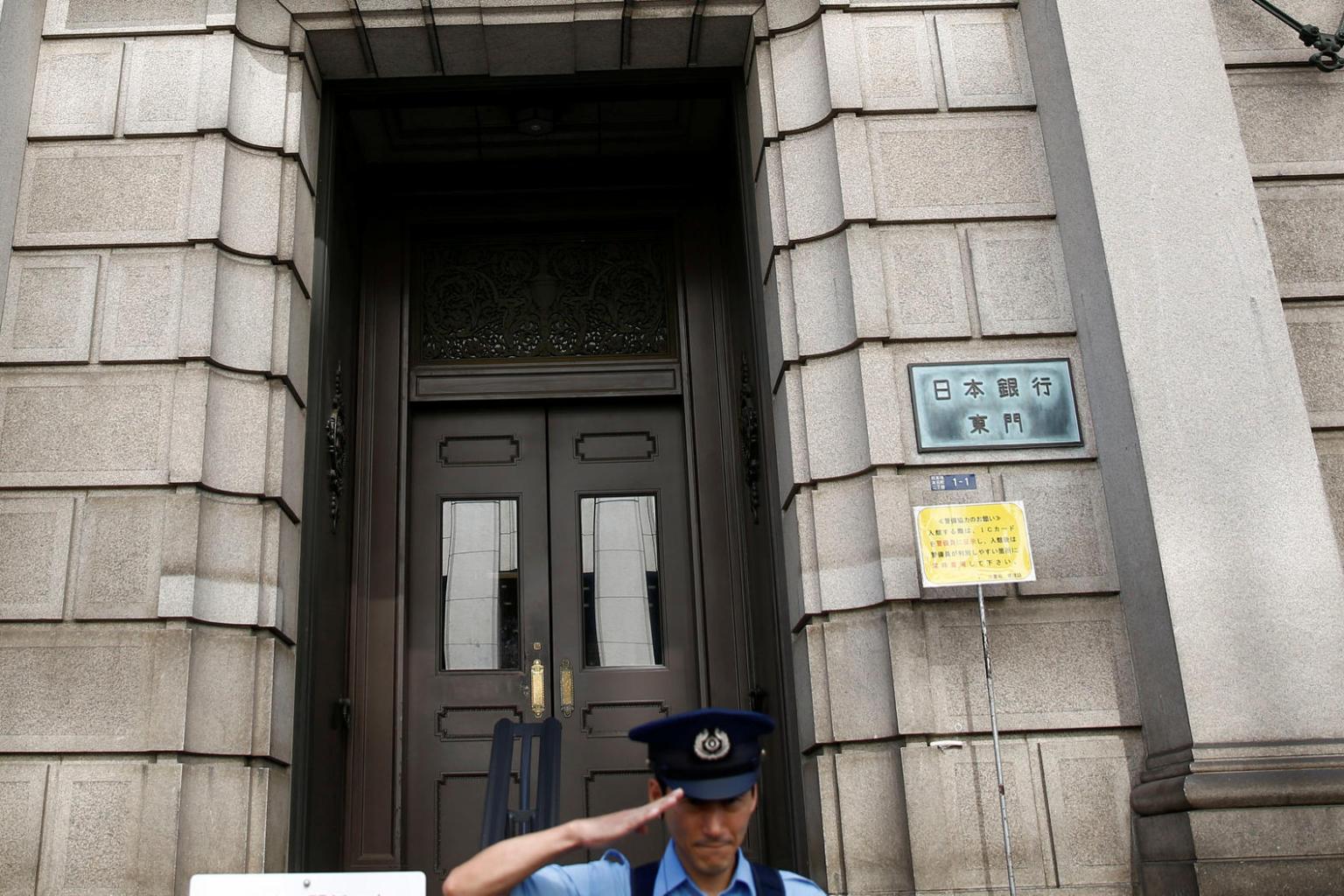Japan for the first time devotes chapter to security laws in defence white paper
Sign up now: Get insights on Asia's fast-moving developments

A security guard salutes in front of the Bank of Japan building in Tokyo, Japan, July 29.
PHOTO: REUTERS
Follow topic:
TOKYO - Japan has for the first time devoted a chapter to the Legislation for Peace and Security in its annual defence white paper that was approved by the Cabinet on Tuesday (Aug 2).
This had involved reinterpreting the post-war pacifist Constitution to allow Japan's military, the Self-Defence Forces (SDF), the right to exercise collective self-defence and go to the aid of ally nations under attack.
The legislation, which was passed in September last year, is of "historical significance and has been highly appraised and favoured by the international community", the white paper said.
"The security environment surrounding Japan has become increasingly severe. In the midst of this, enforcing the legislation to ensure and contribute to peace and stability of the regional and international community is more important than ever," the paper said.
It noted that countries such as Japan's allies the United States and Australia, as well as groupings such as Asean and the European Union have "strongly supported the measure which is essential to the strengthening of the US-Japan military alliance".
But what is left unmentioned is the opposition to the law by China and South Korea, where Japan's actions during World War II still rankle.
The paper said that US -Japan military alliance is the cornerstone of Japan's security, and US military presence in Japan contributes to the country's defence, and acts as a form of deterrence against external threats.
But it also noted that the stationing of US troops on the southern Okinawa islands have caused inconvenience to residents there.
Residents have been vocal against a spate of crimes involving US officers which mostly involved drink-driving. But the rape and murder of a 20-year-old Okinawan woman in May this year, allegedly by a 32-year-old US civilian base worker, had reignited anger.
"Japan plans to make further efforts to achieve the replacement and return of Marine Corps Air Station Futenma as early as possible, and to mitigate the impact on Okinawa in a speedy manner," the white paper said.
Last month, the national government sued Okinawa over the hotly disputed proposal - departing from a court-mediated truce that was reached in March.
The land reclamation needed for the new base requires approval by Okinawa Governor Takeshi Onaga. Mr Onaga rescinded the approval granted by his predecessor and both parties have been embroiled in a bitter legal battle.
Local residents have rioted against the plan as recently as on July 22, with about 500 riot police facing off against 100 protesters upset over the noise pollution and the potential environmental impact.
Meanwhile, Japan's defence budget for fiscal year 2016 increased marginally by 0.8 per cent to 4.86 trillion yen (S$63.7 billion), due to costs for new military equipment and costs involved in hosting US troops on bases in Japan.
But the white paper also noted that Japan's defence budget has only increased by 1.01 times over the past decade, which is lower than the United States (1.15 times), Australia (1.68 tumes), South Korea (1.72 times), China (3.4 times) and Russia (4.62 times).
The paper also said it will promote the employment of female soldiers in the SDF, and review the restrictions surrounding their deployment in roles such as piloting maritime patrol aircraft and attack helicopters.

